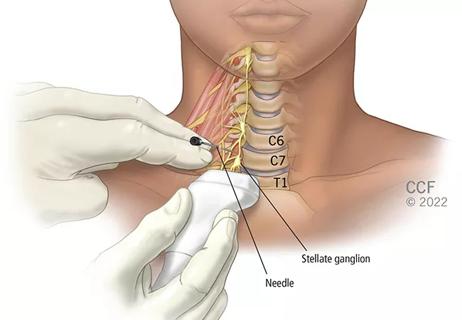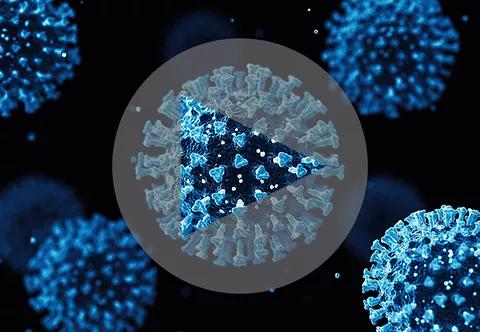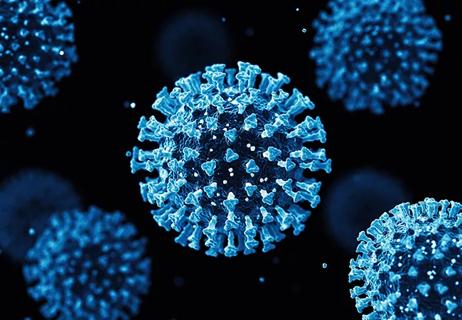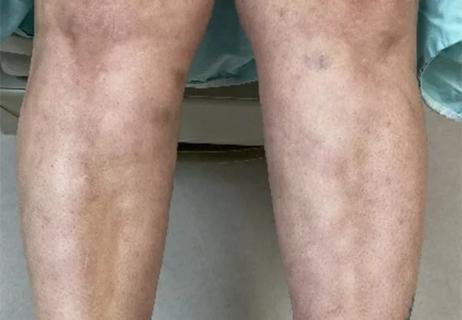Findings offer some reassurance amidst an evolving evidence base

A new retrospective cohort study from Cleveland Clinic found no association between use of angiotensin-converting enzyme inhibitors (ACEIs) or angiotensin II receptor blockers (ARBs) and testing positive for COVID-19. A secondary analysis among COVID-19-positive patients showed no association between use of these medications and risk for mechanical ventilation.
Advertisement
Cleveland Clinic is a non-profit academic medical center. Advertising on our site helps support our mission. We do not endorse non-Cleveland Clinic products or services. Policy
The findings, reported online in JAMA Cardiology on May 5, “add to rapidly evolving evidence related to the role of ACEIs and ARBs in the setting of COVID-19 and support current guidance from professional societies to not discontinue these medications during the pandemic,” says senior author Mina Chung, MD, of Cleveland Clinic’s Department of Cardiovascular Medicine.
The investigation was prompted by controversy over whether ACEIs and ARBs are helpful or harmful in the context of COVID-19. The controversy arose from the fact that COVID-19’s causative virus, severe acute respiratory syndrome coronavirus 2 (SARS-CoV-2), binds to the ACE2 receptor to gain entry into host cells. Some animal models have shown that ACEIs and ARBs upregulate ACE2 expression, prompting speculation that this could increase risk of SARS-CoV-2 infection and worsen COVID-19 outcomes. Others have postulated that upregulation of ACE2 could improve outcomes in the setting of lung injury induced by SARS-CoV-2 infection.
In the absence of clinical data or randomized clinical trials demonstrating either benefit or harm with background use of ACEIs or ARBs in COVID-19 patients, the American Heart Association, American College of Cardiology and Heart Failure Society of America recently recommended continuation of ACEIs and ARBs in patients currently taking them for proven indications, including heart failure, hypertension and ischemic heart disease. At the same time, the professional societies called for “much more detailed research” on this question.
Advertisement
In keeping with that call, Cleveland Clinic undertook a retrospective analysis of a prospective registry of all patients tested for COVID-19 at its locations in Ohio and Florida from March 8 to April 12, 2020. The exposures of interest were ACEI or ARB use as shown in the electronic medical record at the time of COVID-19 testing (done by naso-/oropharyngeal swab).
The primary outcome was a positive COVID-19 test. A secondary analysis was conducted to ascertain clinical outcomes among COVID-19-positive patients in terms of hospital admission, ICU admission and use of mechanical ventilation.
Because comorbidities are more likely among patients prescribed ACEIs or ARBs, propensity-score weighting was performed to adjust for potential confounding. Exposures to ACEIs and ARBs were evaluated in separate and pooled analyses.
Overall cohort. The analysis comprised 18,472 individuals tested for COVID-19, with a mean age of 49 ± 21 years. Subjects were predominantly female (60%) and white (69%).
Testing for COVID-19 was positive in 1,735 patients, or 9.4% of the total sample. Among test-positive patients, 421 (24.3%) were hospitalized, 161 (9.3%) were admitted to an ICU and 111 (6.4%) were placed on a ventilator.
Patients on ACEIs or ARBs. Among the overall cohort of tested subjects, 2,285 individuals (12.4%) were on an ACEI (n = 1,322) and/or an ARB (n = 982). Among the 1,735 patients positive for COVID-19, 116 (6.7%) were taking an ACEI and 98 (5.6%) were taking an ARB.
Patients taking an ACEI or an ARB were significantly more likely than the rest of the cohort to have each of the following comorbidities: obesity, diabetes mellitus, coronary artery disease, hypertension, chronic obstructive pulmonary disease and heart failure.
Advertisement
Comparative test results and outcomes. Overlap propensity-score weighting showed no significant association of ACEI and/or ARB use with test positivity. Specifically, the weighted test positivity rate was 8.6% in patients taking an ACEI versus 9.5% in those not on an ACEI and 10.0% in patients taking an ARB versus 9.3% in those not on an ARB.
Similarly, overlap propensity-score weighting among test-positive patients showed no significant association between ACEI or ARB use and ventilator requirement — a finding observed in both pooled and separate analyses for ACEIs and ARBs. Although ICU admission among patients on an ACEI was significantly more likely than in patients not on an ACEI (24% vs. 15%; odds ratio = 1.77; 95% CI, 1.07-2.92), the investigators note that findings from secondary analyses are largely exploratory at this time.
“This analysis found no association between ACEI or ARB use and COVID-19 test positivity,” says Cleveland Clinic cardiologist Ankur Kalra, MD, the study’s corresponding author. “These medications are important tools in the management of coronary artery disease, heart failure, diabetes and hypertension. As there may be a risk to withdrawing these agents, our findings support current professional society guidelines to not discontinue ACEI or ARB therapy in the context of the COVID-19 pandemic.”
The researchers note, however, that further study is needed to yield more definitive answers, particularly on the question of whether and how ACEI or ARB therapy may impact COVID-19 severity.
Advertisement
“Our findings with regard to clinical outcomes and measures of COVID-19 severity while on ACEI or ARB therapy give some reassurance,” notes Dr. Chung, “but they must be interpreted with caution, due to the small sample size and the limitations of observational studies. They require replication and reanalysis in larger patient samples later in the course of the ongoing COVID-19 pandemic.”
Advertisement
Advertisement

Patients report improved sense of smell and taste

Clinicians who are accustomed to uncertainty can do well by patients

Unique skin changes can occur after infection or vaccine

Cleveland Clinic analysis suggests that obtaining care for the virus might reveal a previously undiagnosed condition

As the pandemic evolves, rheumatologists must continue to be mindful of most vulnerable patients

Early results suggest positive outcomes from COVID-19 PrEP treatment

Could the virus have caused the condition or triggered previously undiagnosed disease?

Five categories of cutaneous abnormalities are associated with COVID-19